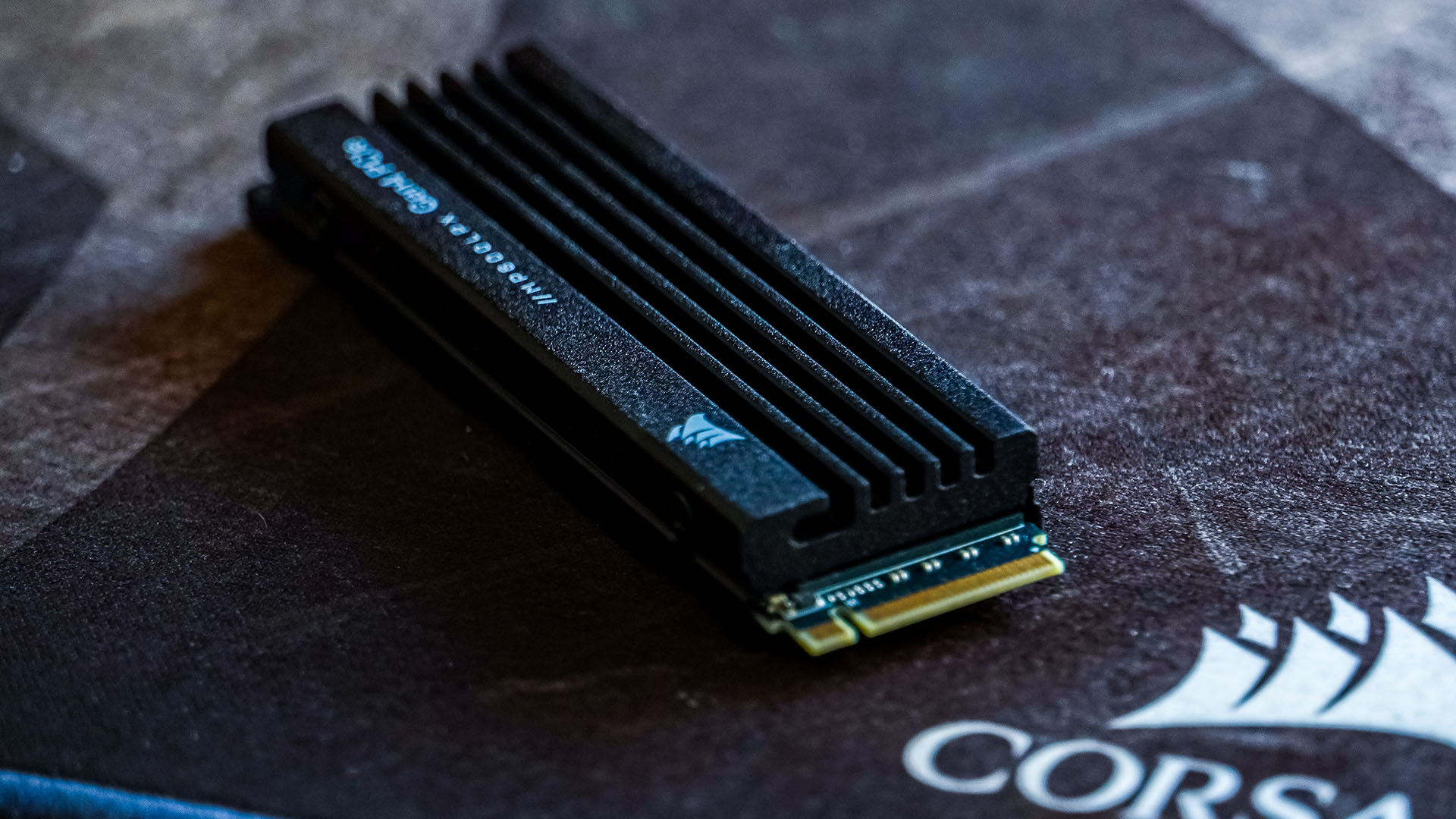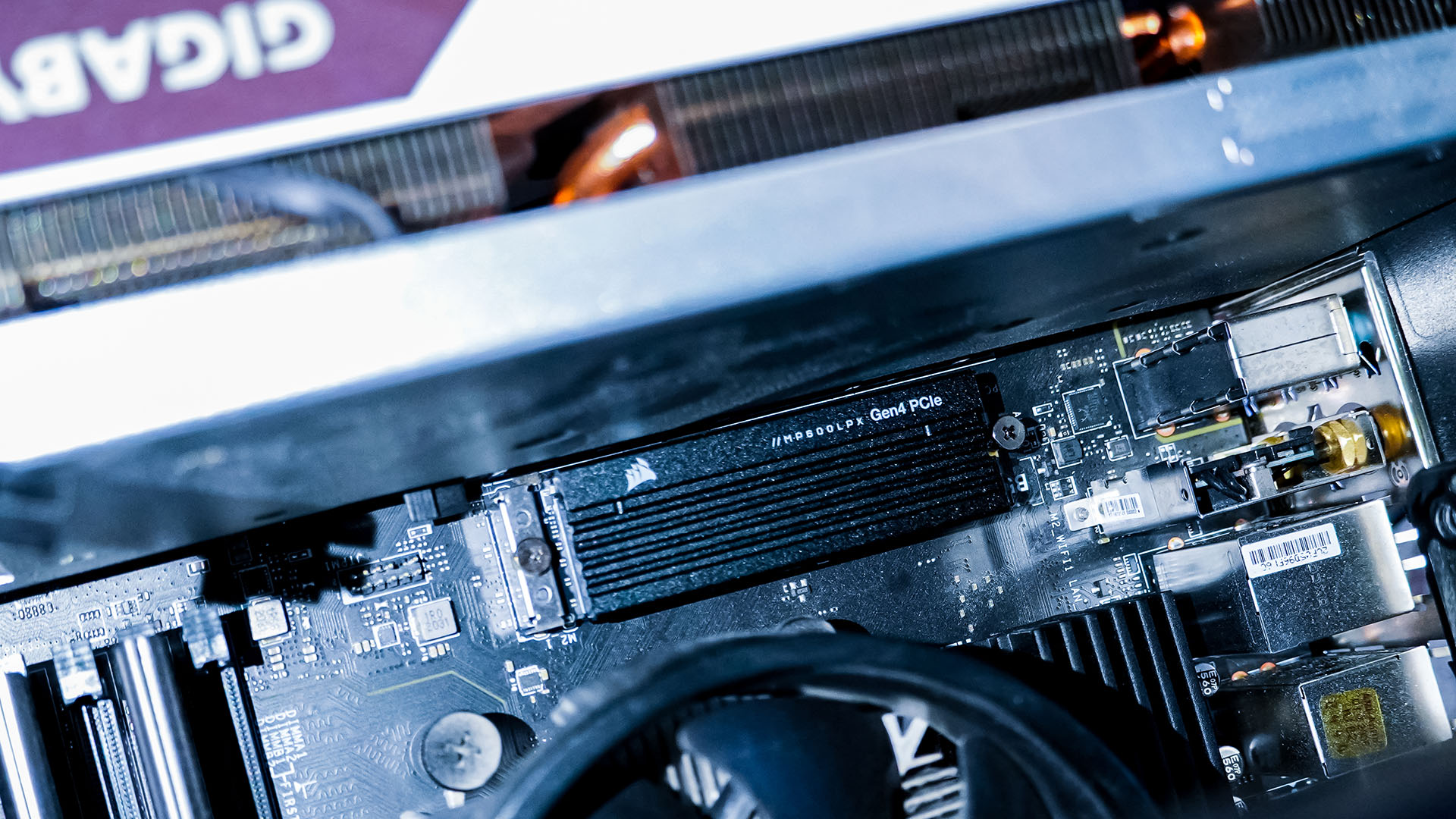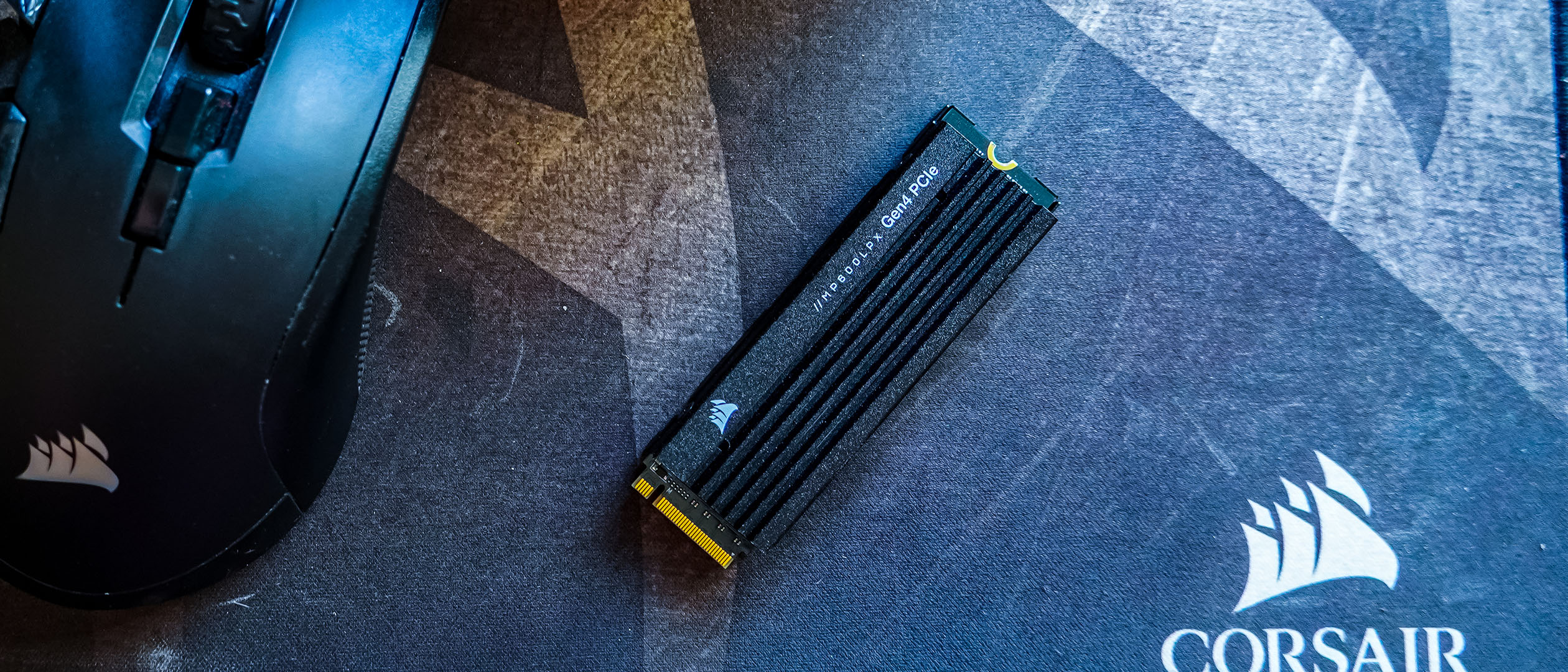TechRadar Verdict
The Corsair MP600 Pro LPX is the drive to get if you want supreme performance for just about any storage needs. It’s at or near the front of the pack in all our testing, and the speed doesn’t come at an absurd markup or sacrifice to drive endurance.
Pros
- +
Leading sequential performance
- +
Fits in PS5
- +
Compelling price
- +
Several size options
Cons
- -
Smaller heatsink costs more
- -
Short of the random crown
Why you can trust TechRadar
The Corsair MP600 Pro LPX is coming for the best SSD crown, and it’s not making huge sacrifices to get there. This drive starts at $109 (about £80, AU$150) for a 500GB model, scales up nicely to $189 (about £140, AU$260) for 1TB and $369 (about £270, AU$510) for 2TB, though it does balloon a bit at $784 (about £575, AU$1,085) for the 4TB option.
This is the system we used to test the Corsair MP600 Pro LPX
CPU: AMD Ryzen 5 3600X
CPU Cooler: AMD Wraith Spire
RAM: 32GB T-Force Vulcan Z CL18 @3,600MHz
Motherboard: MSI B550 Pro VDH Wi-Fi
Graphics card: Gigabyte RTX 3070 Vision OC
OS SSD: Samsung 980 Pro @ 500GB
Power Supply: Thermaltake Toughpower GF1 750W
Case: ThermalTake Core V21
That pricing lands this drive at a somewhat expensive 17 cents per gigabyte of storage at best. That’s not so unreasonable when considering this is a PCIe 4.0 x4 M.2 SSD delivering some of the fastest speeds you’ll find. You can find cheaper NVMe drives going for about 10 cents per gigabyte, but these are generally slower PCIe Gen 3 drives. A few PCIe Gen 4 drives offer similar value, but they don’t come close to maxing out the bandwidth available through a PCIe 4.0 x4 connection.
This is where the Corsair MP600 Pro LPX sets itself apart. We tested the 2TB model, and it gets staggeringly fast performance that breezes past other drives we’ve tested. In sequential read and write, the MP600 Pro LPX lands 7,364MB/s and 6,870MB/s, respectively. That’s faster than the WD_Black SN850 and the Samsung 980 Pro SSDs. Heck, those speeds are faster than Corsair has advertised the drive as running.
Corsair holds up in random read/write operations as well, hitting 3,021MB/s in the former and 2,687MB/s in the latter. Here it leads the pack of almost every consumer SSD we’ve tested except for the Samsung 980 Pro, which maintains a roughly 10% lead. Its performance also holds in PCMark 10’s SSD benchmark, which sees it earn a leading score of 2,969.

Here’s how the Corsair MP600 Pro LPX performed in our suite of benchmark tests:
CrystalDiskMark Sequential: 7364.87MB/s (read); 6870.93MB/s (write)
CrystalDiskMark Random Q32: 3021.02MB/s (read); 2687.72MB/s (write)
10GB file transfer: 4.89 seconds
10GB folder transfer: 5.11 seconds
PCMark10 SSD: 2,969 points
The combination of fast sequential and random performance make the drive well suited for huge file transfers and general operation as a boot drive.
Corsair actually sells this drive in a few different flavors. The underlying MP600 Pro drive may be mostly the same, but there are a handful of cooling options. The MP600 Pro LPX has a low-profile heatsink designed to fit the PS5. The standard model has a slightly taller heatsink while the MP600 Pro XT is even beefier. There are even two options with water blocks. Some of these models are even available for even a little bit less than the LPX, letting you gain even more value if you don’t need to squeeze into a PS5 or confined M.2 slot in your PC.
No matter how you look at it, the drive is offering some incredible value, though. It’s faster than its competitors while still offering reasonable pricing that’s sometimes even lower than its slower opponents. It even has a solid 5-year warranty and endurance to be fully rewritten 700 times. Being able to get it with so many different cooling options is just icing on the proverbial cake. Samsung may get to keep its crown for performance in random operations, but for gamers, the Corsair MP600 Pro LPX is now the drive to beat.

Buy it if…
You can’t stand load times
The incredible speed on this drive makes quick work of big loading tasks. We pop into Dying Light 2 in no time, and matters should only get better as new games are optimized for SSDs and start to leverage DirectStorage
You’ve got big files to move
There are fast SSDs and there is the Corsair MP600 Pro LPX. It’s just faster, and when it comes to moving huge files, that speed will make the biggest difference.
You’re looking to deck out your PS5
While it’ll be unfortunate to have to hide away the somewhat stylish, black SSD, Corsair has made a convenient package that delivers supreme speeds with a cooler that’s all ready to go into a PS5.
Don’t buy it if…
You just want more storage
This drive is all about speed. While it’s a good value for what it is, there’s plenty of modestly fast SSDs, like the Silicon Power US70, that cost a lot less for the same capacity.
You want serious cooling
The Corsair MP600 Pro LPX is specifically designed around its lower-profile heatsink. If you want to hammer the drive and keep it cooled, Corsair has different models with bigger heatsinks for that.
You already have a Samsung 980 Pro or other powerful drive
The Corsair MP600 Pro LPX may beat the Samsung 980 Pro on a few counts and keep up with it in other respects, it’s not such a staggering victory that we’d recommend replacing such a good drive just to get the uplift available here, especially when opportunities to take advantage of all the speed are still rare.
Over the last several years, Mark has been tasked as a writer, an editor, and a manager, interacting with published content from all angles. He is intimately familiar with the editorial process from the inception of an article idea, through the iterative process, past publishing, and down the road into performance analysis.

